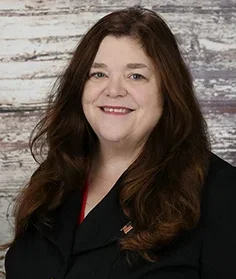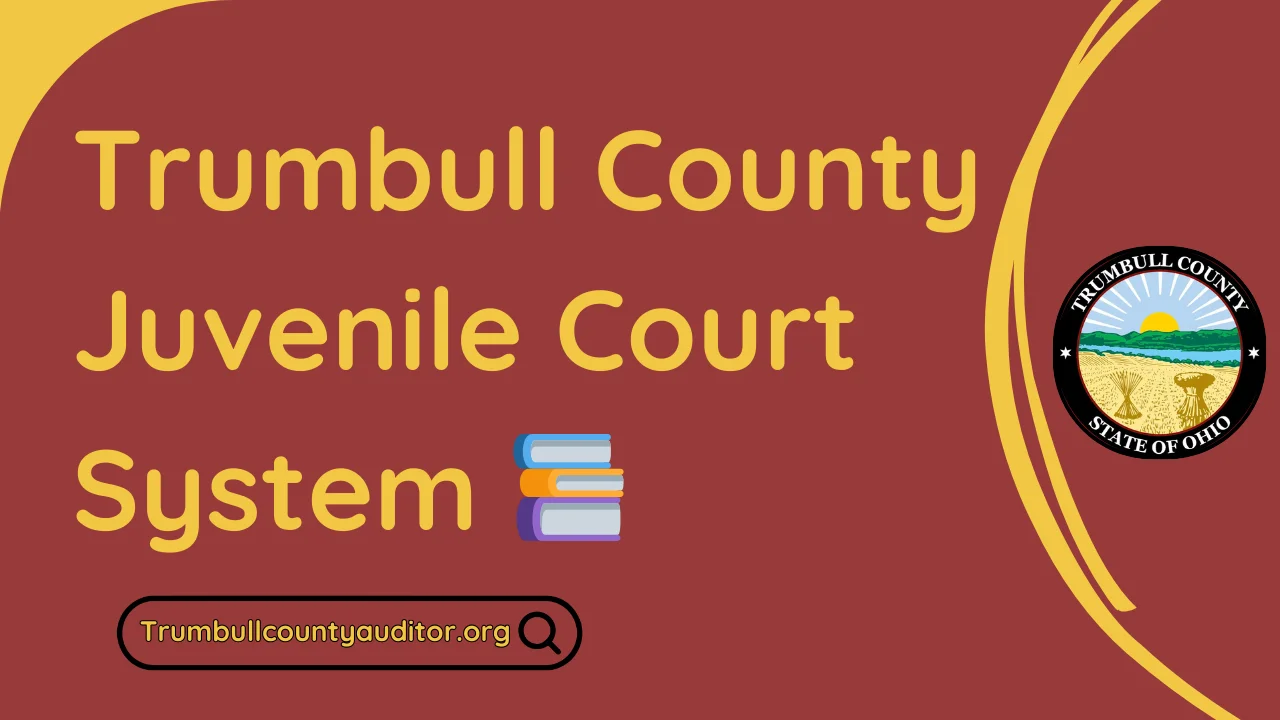Have you ever wondered how the Trumbull County Juvenile Court System works? It plays a key role in guiding young lives. Let’s take a closer look at its structure, values, and services for youth.
From handling cases to running special programs, we’ll explore how it supports justice for minors. This journey will reveal the detailed processes that keep Trumbull County’s youth on the right path.
Overview of Trumbull County Juvenile Court Structure
The Trumbull County Juvenile Court is a key part of the county’s Family Court system. It is led by an Administrative Judge. This court handles both Domestic Relations and Juvenile cases, working together to help young people.
Administrative Organization
Trumbull County Juvenile Court has 63 people working together. This includes 2 judges, 5 magistrates, 6 administrative assistants, 5 bailiffs, and 6 assignment clerks. This team works hard to meet the needs of the juvenile justice system in the county.
Court Personnel and Leadership
The court is led by Administrative Judge Sandra Stabile Harwood and Judge Samuel F. Bluedorn. They are key in guiding the court. Their knowledge and leadership help the court run smoothly.
Jurisdictional Authority
- Trumbull County Juvenile Court handles many cases involving young people. This includes delinquency, custody, and child welfare matters.
- The court has the power to tackle the unique challenges faced by young individuals and their families in the county.
- The court offers special programs and services. It aims to provide support, rehabilitation, and legal help for the youth it cares for.
| Court Personnel | Number |
|---|---|
| Judges | 2 |
| Magistrates | 5 |
| Administrative Assistants | 6 |
| Bailiffs | 5 |
| Assignment Clerks | 6 |
| Total Personnel | 63 |
Mission and Core Values of the Juvenile Justice System
The Trumbull County Juvenile Court’s mission is to help young offenders. It focuses on rehabilitation and what’s best for them. The court wants to be fair and efficient, making sure everyone has access to justice.
It believes in giving young people a chance to learn from their mistakes. The court uses a mix of accountability and rehabilitation to help them become good citizens.
- Accountability: The court makes sure young offenders are responsible for their actions. This helps them learn to behave better.
- Rehabilitation: The court offers programs to help with problems like mental health and family issues. It aims to give young people the tools to live a law-abiding life.
- Community Safety: The court also thinks about keeping the community safe. It balances helping the offender with keeping the public safe.
The Trumbull County Juvenile Court works hard to meet its mission. It focuses on justice, rehabilitation, and community safety. The court’s efforts show its dedication to helping young people and keeping the community safe.
Trumbull County Juvenile Court System
Case Processing Procedures
The Trumbull County Juvenile Court has clear steps for handling cases. This includes the first steps, court hearings, and all the paperwork needed. The court offers many forms, like one for transcripts, to help with different court actions.
Managing cases well means assigning them to judges, setting up hearings, and solving them quickly. This helps the court work smoothly.
Court Hearings and Proceedings
Juvenile court hearings in Trumbull County focus on the special needs of young people. They cover many topics, like deciding on a case and reviewing it later. The court aims to be supportive while following the rules of the juvenile justice system.
Filing Requirements and Documentation
Keeping detailed records is key for the Trumbull County Juvenile Court. They need all important documents, like case files and reports. This helps everyone understand each case well and make better decisions.
| Statistic | Percentage |
|---|---|
| Teens who have engaged in sexting | 15% |
| Teens who have received sexually explicit messages | 27% |
| Youths who have completed the Cyber and Relational Diversion Program (C.A.R.D.) | Over 100 |
| Juveniles who faced charges after completing the C.A.R.D. program | 2 |
| Participants in the Girls Circle program who were adjudicated for a new offense within six months | 4 out of 60 |
| Length of the Nurturing Parent course in Coshocton County | 2 weeks, 4 hours each week |
| Typical duration for juveniles to complete the Coshocton County diversion program contract | 5 to 6 months |
| Average duration for highly engaged families to complete the Coshocton County diversion program | 90 days |
The Trumbull County Juvenile Court System is very detailed in its procedures. It ensures thorough case handling, court hearings, and paperwork. These steps help the court follow the rules and meet the needs of young people.
Juvenile Rights and Legal Representation
In Trumbull County’s juvenile court, young people have rights that must be respected. They have the right to legal help, either from court-appointed lawyers or private ones. The court makes sure they know their rights and get the legal support they need.
Juveniles in Ohio don’t get to choose a jury or post bail. Instead, the focus is on helping them grow and change, not just punishing them. They might stay in a youth facility until they’re 21. But, they might find it hard to clear their records when they turn 21.
Defense lawyers are key in the juvenile court. They defend minors against many charges, like violent crimes and drug offenses. Young people can be labeled in different ways, like traffic offenders or delinquents.
The Trumbull County Juvenile Court System has rules to ensure fairness. These rules protect the rights of young people and help them grow. The court holds different hearings, like ones to decide if a child is delinquent or to figure out their sentence.
| Juvenile Court Hearing Types | Purpose |
|---|---|
| Adjudicatory Hearing | Determines if a juvenile has committed a delinquent act or is an unruly, abused, neglected, or dependent child. |
| Dispositional Hearing | Determines the appropriate disposition (sentence) for a juvenile, which may include rehabilitation services, probation, or detention. |
| Detention Hearing | Decides whether a juvenile should be held in secure detention pending further court proceedings. |
The juvenile court system uses specific terms to guide its actions. Terms like “abused child” and “delinquent child” help decide what to do next. They also outline the roles of the court, guardians, and lawyers.
Court Services and Support Programs
The Trumbull County Juvenile Court offers many services and programs. They help young people and tackle the reasons behind their behavior. The court aims to help them fit back into society.
Rehabilitation Services
The court has programs that tackle behavioral, mental health, and substance abuse issues. The Behavioral Health/Juvenile Justice (BHJJ) initiative helps youth with serious problems. It keeps them out of detention and aims for long-term success.
Counseling Programs
The court provides counseling for individuals and families. The Girls Circle program is very effective. It has shown that only four participants misbehaved after joining, proving its success.
Educational Initiatives
The court knows education is key for young people. It offers educational initiatives to meet their needs. Over 750 students learn about online safety each year, helping them stay safe online.
The Trumbull County Juvenile Court is dedicated to helping youth and families. It works hard to make positive changes in the community.
Role of Judges and Court Officers
In the Trumbull County Juvenile Court, judges are key in overseeing cases and making fair decisions. These juvenile court judges ensure the law is followed and minors’ rights are protected. They also decide on the right interventions and sentences.
Court officers like probation officers and case managers support the judges. They do assessments, give advice, and watch over young offenders. They help in the process of helping them change and reintegrate into society.
The Administrative Judge has extra duties. They manage the court’s operations and make sure resources are used well. This helps meet the needs of all the young people in the court’s area.
| Judicial Responsibilities | Court Officer Roles |
|---|---|
| Oversee case proceedings Make informed rulings and decisions Ensure fair and equitable judicial process Protect the rights of juvenile offenders Determine appropriate interventions and sentences | Conduct assessments and evaluations Provide recommendations to the court Supervise and monitor juvenile offenders Facilitate rehabilitation and reintegration programs Collaborate with judges and other court personnel |
The hard work and knowledge of juvenile court judges and court officers are vital. They help the Trumbull County Juvenile Court achieve its goals. These goals include helping young people change, take responsibility, and have a positive future.
Juvenile Case Management and Processing
The Trumbull County Juvenile Court has a detailed system for handling juvenile cases. It starts with intake procedures, assigns cases based on a protocol, and manages timelines. This ensures cases are solved in a timely manner.
Initial Intake Procedures
The court begins with a detailed intake process for new cases. It collects information about the juvenile, their family, and the case’s background. The intake team then decides the best course of action for each case.
Case Assignment Protocol
After intake, cases are assigned to judges or magistrates based on a protocol. The court considers the offense, the juvenile’s history, and the judge’s expertise. This ensures cases are handled by the right people, leading to better outcomes.
Timeline Management
The Trumbull County Juvenile Court uses a timeline management system to keep cases moving. It uses electronic tools to track cases and meet deadlines. This shows the court’s commitment to fair and quick justice for young people.
| Statistic | Value |
|---|---|
| Percentage of juvenile justice-involved youth enrolled in the Behavioral Health Juvenile Justice (BHJJ) program who were male | 55% |
| Average age of youth entering the BHJJ program | 15.0 years |
| Percentage of youth enrolled in BHJJ who were White | 65% |
| Percentage of youth enrolled in BHJJ who were male (between July 2017 and June 2019) | 50% |
| Average age of youth entering the BHJJ program (between July 2017 and June 2019) | 15.2 years |
Specialized Programs and Treatment Options
Trumbull County’s juvenile justice system has special programs for young offenders. These programs offer more than just court actions. They provide specific help and ways to change behavior for the better.
The county’s Drug Court helps teens with drug problems. It mixes treatment, court visits, and watchful eyes. This way, teens can beat addiction and find better ways to deal with life.
The Mental Health Court gives teens with mental health issues the help they need. They get the support and tools to handle their conditions well.
Trumbull County works with groups to offer many services. These include counseling, learning programs, and workshops to build skills. These efforts help teens understand why they acted out and help them make good choices.
These programs show Trumbull County Juvenile Court’s dedication to helping each teen. By focusing on rehabilitation and growth, the court hopes to stop juvenile crime. It aims for a brighter future for these young people.
Conclusion
The Trumbull County Juvenile Court system is key to a fair and effective justice system. It focuses on helping young people, keeping communities safe, and protecting their rights. The court offers many services and programs to meet the needs of each case.
It works hard to help youth change for the better and fit back into their communities. This approach is in line with the overall goals of the juvenile justice system. The court also works with local groups, schools, and social services to support young people fully.
The Trumbull County Juvenile Court is always looking to improve and meet the community’s needs. It stays true to its values of fairness, accountability, and helping young people. This shows the court’s important role in helping youth and their families in Trumbull County.



